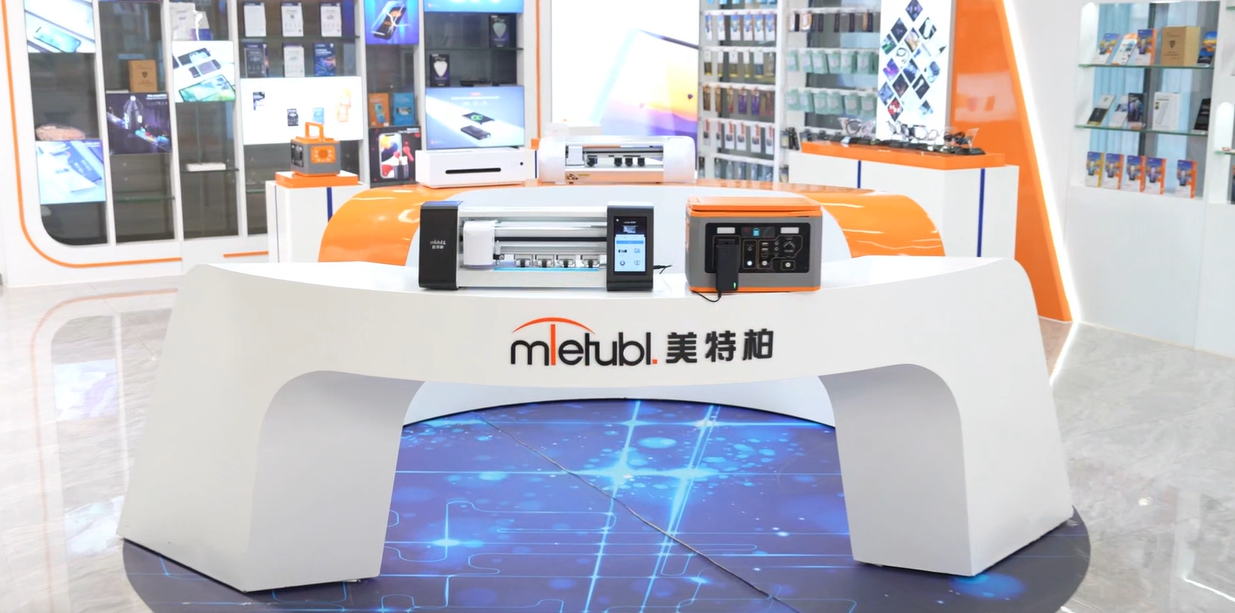
MIETUBL Brand Overview
MIETUBL is a brand originating from China and thriving through China’s intelligent manufacturing. It is committed to providing high-quality mobile accessories and related products to global consumers. Since its inception in 1998, the brand has followed the trends of the times, focusing on resource integration and building a symbiotic and shared industry ecosystem, enabling global consumers to conveniently access quality products that enhance their lives.
By continuously innovating and diversifying its product offerings, MIETUBL has achieved significant success in the mobile accessory industry. As a brand driven by customer value and innovation, MIETUBL has expanded into various product applications while accumulating rich industry experience and establishing a stable customer base. Headquartered in Zengcheng, Guangzhou, the company has strategically positioned itself within the mobile accessory industry, integrating high-quality production resources and aiming for a win-win business model.
Core Values and Development Vision:
-
Customer-Centric: MIETUBL always prioritizes customer needs, continually enhancing product quality and consumer experience through innovation and technological research and development.
-
Resource Integration and Industry Symbiosis: By integrating industry resources, MIETUBL creates a symbiotic, shared industry ecosystem, connecting global distributors and consumers, and promoting mutual growth across the value chain.
-
Global Vision: MIETUBL is committed to bringing Chinese manufacturing to the world, providing global consumers with high-quality, innovative mobile accessories, while offering profitable opportunities for distributors.
MIETUBL’s long-term vision is to continually enhance its products through innovation and quality, establishing “MIETUBL” as a globally trusted brand, recognized in markets around the world.
PRODUCTS
Why Does Tempered Glass with 9H Hardness Stay Clear and Scratch-Free?
The Magic of Tempering: A Transformation of Strength
Standard glass is relatively brittle and prone to shattering upon impact. Tempered glass, however, undergoes a process called thermal tempering or chemical strengthening. In thermal tempering, the glass is heated to an extremely high temperature (near its softening point) and then rapidly cooled. This rapid cooling creates compressive stresses on the surface of the glass and tensile stresses in its core. This internal stress configuration is the key to the glass's enhanced durability. Imagine it like a tightly wound spring – the surface is compressed, making it significantly more resistant to external forces.
Chemical strengthening, on the other hand, involves immersing the glass in a molten salt bath. This process allows ions from the bath to exchange with ions within the glass, creating a compression layer on the surface. While slightly different in method, both thermal and chemical tempering achieve the same outcome: a dramatically increased resistance to scratching and shattering.
9H Hardness: A Measure of Scratch Resistance
The 9H hardness rating is a measure of the glass's resistance to scratching on the Mohs Hardness Scale. This scale ranges from 1 (talc) to 10 (diamond), with each number representing an increase in scratch resistance. A 9H rating indicates that the tempered glass can resist scratches from most common materials, including steel. This high hardness isn't achieved solely through the tempering process; the composition of the glass itself also plays a crucial role. Often, tempered glass used in screen protectors is made with a specific formulation to maximize its durability and clarity.
It's important to note that even a 9H rating doesn't make the glass completely scratch-proof. Materials harder than the glass, such as diamonds or certain industrial abrasives, can still cause scratches. However, the 9H rating ensures that the glass will easily withstand the daily wear and tear from everyday objects.
Maintaining Clarity: Minimizing Imperfections
The clarity of tempered glass is paramount, especially for applications like smartphone screen protectors. The manufacturing process is meticulously controlled to minimize imperfections and maintain optical transparency. During the tempering process, careful attention is paid to avoid introducing any bubbles, streaks, or other flaws that could compromise the glass's clarity. The high-quality raw materials used also contribute to the excellent clarity of the final product.
Furthermore, sophisticated coating techniques are often employed to enhance the glass's surface properties. These coatings can improve scratch resistance, reduce glare, and enhance the overall smoothness of the surface, contributing further to its clarity and resistance to fingerprints. These additional layers are incredibly thin and do not significantly impact the overall clarity of the glass.
Conclusion: A Synergy of Science and Engineering
The ability of tempered glass with a 9H hardness rating to stay clear and scratch-free isn't a single miracle but the result of a sophisticated interplay of materials science, precise manufacturing processes, and advanced surface treatments. The tempering process introduces internal stresses that dramatically increase its strength, while the 9H hardness rating signifies its remarkable scratch resistance. The meticulous control over the entire manufacturing process, from raw materials to final coating, ensures the glass maintains its clarity and exceptional durability. The seemingly invincible nature of your screen protector is, therefore, a testament to the power of human ingenuity in harnessing the properties of materials to create remarkably resilient and transparent products.
SUBSCRIBE
INQUIRY